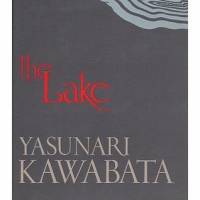Yasunari Kawabata is often seen in the West as one of the quintessential modern Japanese writers. His most famous novels are filled with tea ceremonies and geisha and his prose is a consummate example of mono no aware, the Japanese aesthetic that finds beauty in the transience of things.
The Lake, by Yasunari Kawabata, Translated by Reiko Tsukimura.
160 pages
KODANSHA, Fiction.
It is little wonder that Kawabata's ability to express "the essence of the Japanese mind" was cited when he was awarded the Nobel Prize for literature in 1968.
For these reasons his 1954 novel, "The Lake," may be something of a shock for readers more used to the gentle melancholy of Kawabata's better known works. The main character, Gimpei Momoi, drifts from place to place, stalking various women, while sordid and disturbing events from his past are recounted. The narrative moves hazily through different time periods, and characters emerge and fall away like ghosts. The reader is slowly drawn into Momoi's twisted worldview and, besides an indescribable sadness, something much more sinister permeates the story.
Though the novel's atmosphere of perversion and depravity puts it in stark contrast with "Snow Country" and "Thousand Cranes," Kawabata's genius is still evident in the prose, shaping it with the poetry and indistinctness of a dream. "The Lake" is highly recommended to readers wanting to experience a darker aspect of Kawabata's particular sense of beauty.
Read archived reviews of Japanese classics at jtimes.jp/essential.

















With your current subscription plan you can comment on stories. However, before writing your first comment, please create a display name in the Profile section of your subscriber account page.